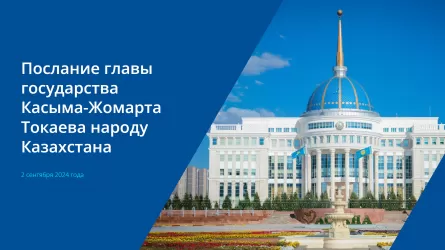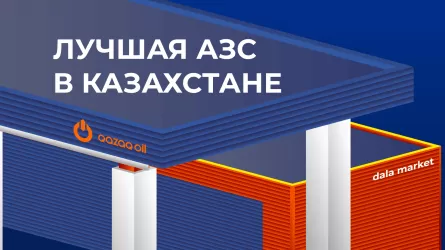The Astana Times – Over four years since its establishment, the Astana International Financial Centre (AIFC), the nation’s ambitious project to become a financial hub, seeks to foster sustainable economic development in Kazakhstan in a broader effort to support the New Kazakhstan agenda, AIFC Governor Kairat Kelimbetov told The Astana Times.
Established in 2018, the center works in financial technologies, Islamic finance, green finance, capital market, and asset management. It significantly grew from 50 companies in 2018 to over 1,270 companies from more than 60 countries. There has been a huge progress made with companies investing US$6.3 billion through the AIFC platform in the Kazakh economy.
In terms of sectors, the majority of companies have access to multiple preferences, such as liberal visa regime and tax breaks, work in IT services and infrastructure (29 percent), followed by companies in finance (24 percent) and ancillary services (11 percent).
“The AIFC will continue to work on creating an appealing innovation ecosystem to attract investments in financial, technological, and human capital. These include further expanding the AIFC jurisdiction, boosting the level of protection for investors, promoting rule of law, improving infrastructure, increasing regulatory transparency, and simplifying the visa regime,” said Kelimbetov in an interview for this story describing AIFC’s role in building a New Kazakhstan.
Over the years, the AIFC was a pioneer in the region by introducing innovative instruments, including green and social bonds. The first green bond issue took place back in 2020 and by the end of 2021, the volume of green bonds issued on the AIX and KASE (Kazakhstan Stock Exchange) has reached 52.6 billion tenge (US$116 million), green loans – 28.5 billion tenge (US$62.8 million), and the sustainable finance market, including social bonds and loans, in Kazakhstan surpassed US$250 million.
The AIFC has also been proactive in growing its exchange and fintech platforms. Since its launch, AIX, which has 131 listings, and 18 local and 11 international brokers, has raised $321.4 million in equity capital, while fixed income capital made $1.27 billion. In 2021, trading activity on AIX surpassed $300 million.
Another AIFC subdivision – TechHub – promotes a start-up ecosystem, the venture industry market, e-commerce, corporate innovation, and new technology.
“Tech Hub gave rise to a whole new industry in Kazakhstan – the industry of venture capital, worth more than US$8 million according to the principles of international standards. Kazakhstan has entered the Global Fintech Index 2021 for the first time, ranking 13th among the countries of the Asia-Pacific region,” he said.
Beyond that, some of Kazakhstan’s major documents, including the 2025 National Development Plan, also cement the role of the AIFC as its area of work support the country’s key objectives – investment attraction and sustainable economic development.
“The AIFC’s role has grown in importance, as it addresses new challenges that we are facing on internal, regional, and international levels,” he added, emphasizing the favorable business environment, a unique legal and regulatory regime, and well-developed institutional and physical infrastructure.
Kelimbetov said that the work of AIFC goes beyond the mandate enshrined in its development strategy, which includes attracting investments, expanding a securities market, developing insurance markets, banking services, Islamic finance, financial technologies, e-commerce, and innovative projects.
“In addition to the financial and investment sector, we have already achieved significant progress in the following areas: ESG (Environmental, Social, and Governance) principles and green economy, digitalization of the economy, technology and innovation, economic complexity,” said the AIFC governor.
Its strategy also rests on the circular economy, including the development of a low carbon strategy, increasing energy efficiency, decarbonization of energy supplies, investing in physical and digital infrastructure, and leveraging the 4IR.
Kelimbetov said that the work done over four years “provides a firm foundation for the next stage of the AIFC development” – turning the AIFC into a regional financial hub for international markets.















